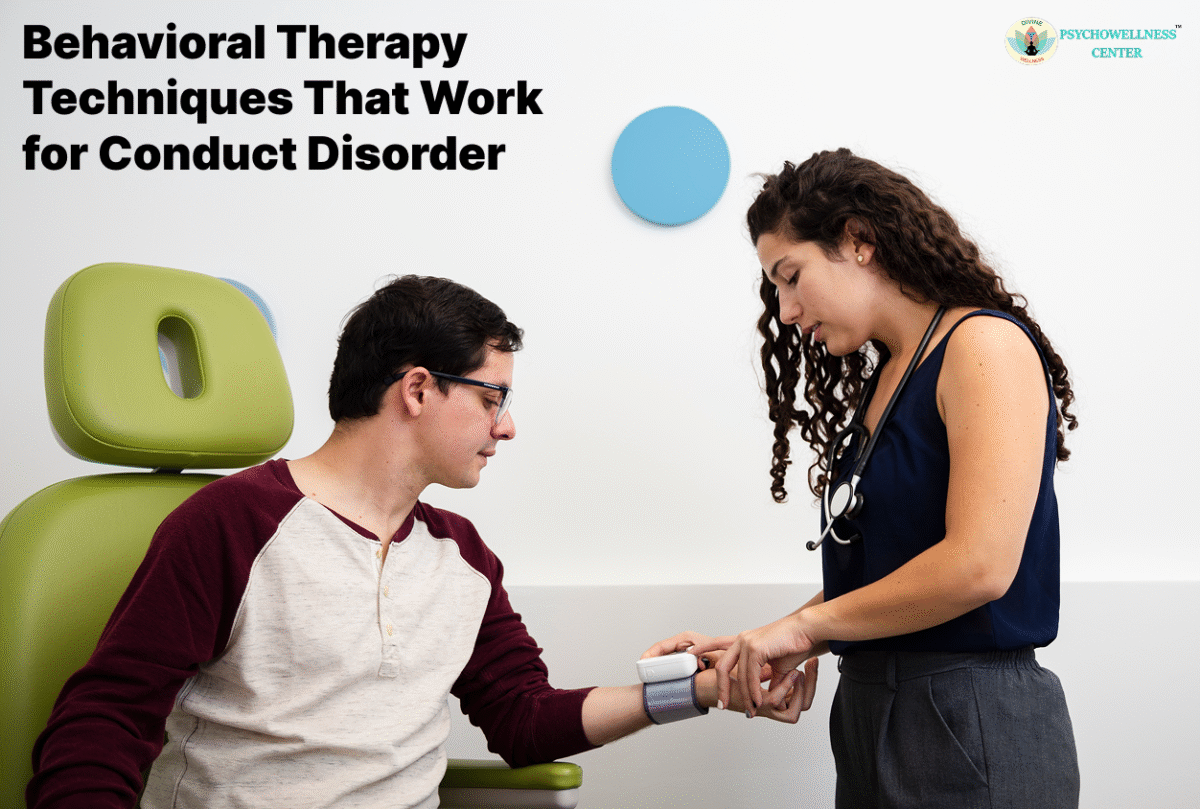Conduct Disorder (CD) is a serious and often misunderstood behavioural and emotional disorder that typically emerges in childhood or adolescence. It is characterised by a persistent and repetitive pattern of behaviour that violates the rights of others or major age-appropriate societal norms. Children and adolescents with CD frequently display aggressive tendencies—toward people or animals, as well as deceitful, destructive, or rule-breaking behaviours. These may include bullying, physical fights, vandalism, lying, stealing, truancy, or running away from home.
What sets CD apart from occasional misbehaviour is the chronic nature and intensity of the actions. These behaviours are not isolated incidents, but part of a long-standing pattern that causes significant impairment in academic, social, and family functioning. Individuals with conduct disorder often struggle to follow rules, show little regard for authority figures, and exhibit a notable lack of empathy or remorse for their actions.
Behavioural therapy offers effective techniques that can help manage and reduce these behaviours. By targeting the root causes such as anger, anxiety, depression, and stress, therapists can guide individuals toward healthier patterns of thinking and behaviour. Here’s a look at proven behavioural therapy techniques that work for conduct disorder.
1. Cognitive Behavioural Therapy (CBT)
Cognitive Behavioural Therapy (CBT) is one of the most widely used and researched approaches for conduct disorder. It focuses on identifying and changing negative thought patterns that lead to problematic behaviours.
Key Benefits of CBT for CD:
- Helps manage anger by teaching emotional regulation strategies
- Reduces anxiety and depression by addressing cognitive distortions
- Encourages better decision-making and problem-solving
- Improves communication and interpersonal skills
CBT can be delivered in individual or group settings and often includes homework assignments to reinforce skills outside the therapy room.
2. Parent Management Training (PMT)
Because children with CD often display defiance and aggression at home, Parent Management Training (PMT) is an essential part of treatment. This technique trains parents in consistent, positive discipline strategies.
PMT Techniques Include:
- Positive reinforcement for desired behaviours
- Structured consequences for rule-breaking
- Reducing stress by setting clear boundaries
- Teaching parents how to model calm communication
By involving parents directly, PMT creates a more supportive home environment that promotes lasting change.
3. Anger Management Training
Uncontrolled anger is a major symptom of conduct disorder. Anger management programs teach children how to recognise their emotional triggers and develop healthier coping strategies.
Core Techniques:
- Deep breathing and relaxation exercises to reduce physiological stress
- Role-playing scenarios to practice appropriate responses
- Teaching delay techniques (e.g., counting to 10)
- Journaling to process intense emotions like anxiety and depression
These techniques empower individuals to gain control over their emotional reactions instead of acting impulsively.
4. Social Skills Training (SST)
Children and teens with CD often struggle with peer relationships and may misinterpret social cues. Social Skills Training focuses on improving communication, empathy, and conflict resolution.
Key Focus Areas:
- Understanding body language and tone of voice
- Practising active listening and turn-taking
- Learning to express feelings in non-aggressive ways
- Developing teamwork and cooperation skills
These tools reduce the social stress that can lead to outbursts or isolation, while building confidence in social situations.
5. Problem-Solving Skills Training (PSST)
Problem-Solving Skills Training (PSST) helps individuals analyse situations more logically, rather than reacting with aggression or avoidance.
Steps Often Include:
- Identifying the problem
- Brainstorming possible solutions
- Evaluating the consequences of each option
- Choosing the best solution and putting it into action
This structured approach reduces impulsive decisions driven by anger, anxiety, or stress, and promotes more thoughtful behaviours.
6. Mindfulness-Based Techniques
Though not traditionally part of behavioural therapy, mindfulness practices are increasingly used to support emotional regulation in conduct disorder.
Mindfulness Can Help By:
- Lowering stress and calming the nervous system
- Reducing symptoms of depression and anxiety
- Enhancing self-awareness
- Improving focus and patience
Simple exercises like mindful breathing, guided imagery, or body scans can be easily integrated into therapy sessions or daily routines.
Conclusion
Treating conduct disorder is challenging, but behavioural therapy techniques offer real and lasting hope. By addressing the underlying emotional drivers such as anger, anxiety, and impulsivity and equipping children with better coping, communication, and problem-solving skills, therapy can significantly improve behaviour and long-term outcomes. With consistent support and the right interventions, children with conduct disorder can learn to form healthier relationships and make more constructive choices.
If you’re starting to recognise patterns of disruptive or aggressive behaviour in a child and asking yourself, “Where can I find the best psychologist near me?”—you’re not alone. Early intervention is key. Therapy provides a safe and structured space to understand and manage these behaviours effectively. Whether you prefer the flexibility of online counselling through platforms like TalktoAngel or need face-to-face sessions, support is within reach. TalktoAngel connects families with licensed professionals experienced in managing conduct disorder and related behavioural challenges. For those seeking in-person care, the Psychowellness Centre in Janakpuri and Dwarka Sector-17 offers expert-led therapy in a compassionate environment.
Taking that first step isn’t just about managing symptoms, it’s about helping a child build a healthier, more hopeful future.
Contribution: Dr. R.K. Suri, Clinical Psychologist, and Ms. Drishti Rajore, Counselling Psychologist.
This blog was posted on 8 October 2025.
References
Kazdin, A. E. (2017). Parent management training: Treatment for oppositional, aggressive, and antisocial behavior in children and adolescents (2nd ed.). Oxford University Press.
https://doi.org/10.1093/med:psych/9780195386004.001.0001
Eyberg, S. M., Nelson, M. M., & Boggs, S. R. (2008). Evidence-based psychosocial treatments for children and adolescents with disruptive behavior. Journal of Clinical Child & Adolescent Psychology, 37(1), 215–237.
https://doi.org/10.1080/15374410701820117
Lochman, J. E., & Wells, K. C. (2004). The Coping Power Program for preadolescent aggressive boys and their parents: Outcome effects at the 1-year follow-up. Journal of Consulting and Clinical Psychology, 72(4), 571–578.
https://doi.org/10.1037/0022-006X.72.4.571
https://www.talktoangel.com/area-of-expertise/conduct-disorder
https://www.talktoangel.com/blog/conduct-disorder-symptoms-interventions
https://www.psychowellnesscenter.com/service-applied-behavior-analysis-in-delhi/
https://www.psychowellnesscenter.com/Blog/how-to-use-behavioural-therapies-for-adhd/

